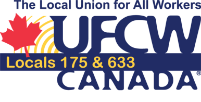“Union”
Words You Might Not Know
Confused by some of the words used when talking about Unions?
Every industry has its own jargon. Sometimes we forget that not everyone knows all the words we use.
So, here is a breakdown of some of the more common Union-related words. You might come across these things when reading Union documents or when talking to our Organizers, to your Union Steward and Health & Safety Committee, and your Union Rep!
See something missing? Let us know! Send us an email.
Choose a letter below to skip right to the section you want, or scroll down to see the whole list.
A
Affiliation
When a union joins another group. For example, a district labour council or federal or provincial federation of labour.
Arbitration
A way to settle employment disputes (Grievances) through an impartial third party (an Arbitrator) whose decision is final and binding. The decision is bound by the terms of the collective agreement. Arbitration can be voluntary or mandated.
Article
A section of a legal document, such as a collective agreement or bylaw.
B
Bad Faith Bargaining
By Law, employers and Unions have a duty to bargain in good faith when they are negotiating or renewing a collective agreement. This means that both sides must engage in full discussion with the other and make every reasonable effort to reach an agreement. Not doing so could amount to bad faith bargaining.
Bargaining Agent
The Ontario Labour Relations Board (OLRB) certifies that a specific Union that represents the employees at a workplace(s) who are/will be covered by a Collective Agreement. See Collective Bargaining as well.
Bargaining Unit
All the employees represented by the Union at a particular workplace covered by a Collective Agreement.
Bereavement Leave
Bereavement leave allows employees time off to deal with the death of a family member, without fear of job loss. This leave can be paid or unpaid and your collective agreement will have the details. Each workplace will vary but your contract will detail how much time you are entitled to, if you will be paid for the time and when the leave can be taken. In some instances, the leave can begin at a later date if a funeral or memorial service is delayed.
Bylaws
A local union’s bylaws are rules adopted by the organization that affirm how the local union will regulate its activities and the rules it must follow. Bylaws are developed in conjunction with the international constitution.
C
Certification
When the Ontario Labour Relations Board (OLRB) designates a Union as bargaining agent for a group of workers. The Union must prove in its application, and in the vote that follows, that the required percentage of employees support Union representation. Automatic certification can be awarded without such proof if the Board is satisfied that the employer interfered substantially in the rights of the workers to organize voluntarily.
Certification
When the Ontario Labour Relations Board (OLRB) designates a Union as bargaining agent for a group of workers. The Union must prove in its application, and in the vote that follows, that the required percentage of employees support Union representation. Automatic certification can be awarded without such proof if the Board is satisfied that the employer interfered substantially in the rights of the workers to organize voluntarily.
Collective Agreement
A legal contract between the Union and employer. The contract lays out wages, hours, working conditions, rights of workers, and steps to follow to settle disputes. Also called a collective bargaining agreement, CBA, or CA.
Collective Bargaining
Negotiations with an employer on behalf of a group of workers to determine wages, hours, and other working conditions, and achieve a written contract covering all members of the bargaining unit.
Collective Bargaining Unit
A group of workers, as determined by the Ontario Labour Relations Board (ORLB), to be represented by a union for the purpose of collective bargaining and covered by the resulting Collective Agreement.
Conciliation & Mediation
A non-binding process to resolve labour disputes by compromise or voluntary agreement. The parties may accept or reject the outcome. A conciliation officer is often a government official, and a mediator is usually an individual appointed by government as a last resort, sometimes after the start of a strike.
Contract Proposals
Workers (and the employer) may propose changes to the Collective Agreement. The Union and employer bring their proposals to the bargaining table for negotiation and discussion.
Contracting Out
When work is “contracted out” it means that the employer has made a contract with someone outside of an organization to perform a job or part of a job. In some cases, this can lead to job loss as another agency is being commissioned to do the work that was once performed by employees. Unionized workers have someone to fight for them against his type of employer tactic. Most collective agreements contain language setting out what is bargaining unit work. This language will both prevent it from happening and in the event that the employer attempts to do so, there is also a method of dispute resolution.
D
Duty to Accommodate
Employers and service providers have an obligation to adjust rules, policies or practices to enable you to participate fully. It applies to needs that are related to the grounds of discrimination.
F
Final Offer
Under the Ontario Labour Relations Act, the employer has the right to force the workers in the bargaining unit to vote to accept or reject their “final offer”. The employer can only force this vote once.
G
Grievance
An official complaint filed against an employer by one or more employees, or their union, concerning a breach of the Collective Agreement. Types include:
- Individual Grievance: When an employer's breach of contract violates the rights of one Union Member.
- Group Grievance: When an employer's breach of contract violates the rights of more than one Union Member.
- Policy Grievance: Usually applies to a disagreement in the interpretation of language/a provision in the agreement.
H
HLDAA
The Hospital Labour Disputes Arbitration Act (Ontario) defines how some healthcare workers negotiate their collective agreements. Unlike traditional private sector bargaining, any items not agreed to will be decided by either a single arbitrator, or by a board of arbitration. The legislation also establishes an alternative and mandatory method for dispute resolution.
J
Job Security
Conditions in a collective agreement that protect a worker’s job from being replaced through the use of contract workers, the introduction of new methods or technologies, and/or in providing transfer in the event of closure or downsizing.
Just Cause Protection
Employers must have justified reasons for disciplining or firing a Unionized worker. Non-Union workers do not have this protection.
K
Key
A Key is an employee in a non-Union work environment who is the main contact for a Union Organizer. The Key, and sometimes there are more than one Key, is someone who builds relationships and avenues of communication among co-workers to ensure the employees receive information they need for the organizing process.
L
Local Union
The basic unit of a union organization also known as a division or branch. For the purposes of administration, trade unions are usually divided into a number of Locals. These Locals have their own by-laws and elect their own officers. Locals are usually responsible for their own negotiations and day to day administration of the collective agreement.
Lockout
A lockout is a work stoppage or denial of employment initiated by the management of a company during a labour dispute. Management locks workers out of their workplaces and refuses work to employees in order to force a settlement on the employer’s terms.
N
No Board Report
If the union and the employer don't reach an agreement during conciliation, the conciliation officer will report the outcome to the Minister of Labour, the minister will send a written notice to the union and the employer. Typically, this notice will inform the parties that a board of conciliation will not be appointed. This is commonly known as a "no-board". No union can legally strike and no employer can legally lock a union out without the release of a “no board” report or a notice of a conciliation board's report by the Minister.
O
Organizer
An Organizer is someone who works to build a Union drive or campaign for non-Union workers within a given workplace. Organizers often work with Keys inside a workplace to speak to and inform those employees about their rights and guide them through the legal process of joining a Union. In most cases, an Organizer is working on behalf of a specific Union.
P
Past Practice
Past practice refers to a longstanding, frequent action that is known and accepted by both the Union and the employer. Legitimate past practices can be considered part of the contract and grievances can be filed if they are violated. Check your collective agreement for language specific to your workplace regarding past practice.
R
Ratification Vote
When the negotiating committee reaches an agreement with management that they feel is the best deal they can bring back to the members, a ratification vote is scheduled. If the vote has a positive outcome, the new agreement comes into effect. If the membership turns downs the offer, the negotiating committee will return to the bargaining table, and in some cases a labour dispute may commence.
Recognition Clause
The section of the Collective Agreement that specifies who is in and out of the bargaining unit. It also stipulates that the Union is the exclusive bargaining agent for the employees in that bargaining unit.
Red Circling
The term “red circled” is used to describe an employee whose pay is above their position's maximum rate.
S
Seniority
An employee’s status relative to other employees which may determine order of promotion, layoff/recall, transfer, vacations, etc. Seniority can be based on length of service alone or on other factors too.
Solidarity
Solidarity is the fundamental principle of trade unionism. It means unity or agreement especially among individuals with a common interest and that all members of the union-movement agree to help one another in the fight for fair wages, safe workplaces, better benefits and human rights.
Steward
An employee in the workplace who deals with grievances and other issues on behalf of the workers. At UFCW Locals 175 & 633, Stewards are part of the workforce they represent. Larger workplaces sometimes have Plant Union Committees made of many Stewards. All Stewards work with the Full-Time Union Rep to ensure their collective agreement is upheld.
Strike
A cessation of work, a refusal to work or to continue to work by employees. A strike usually takes place when workers stop working in order to create pressure for the employer to settle a collective agreement.
T
Tentative Agreement
When there is a tentative agreement, it is the point in negotiations where the Union and the employer have reached an agreement of the terms of the collective agreement. At this stage, the agreement still needs to be ratified (voted on and approved) by the members of the bargaining unit.
U
Union
A union is an organization made up of members and its membership must be made up mainly of workers. One of a union's main aims is to protect and advance the interests of its members in the workplace.
W
WSIAT / Workplace Safety & Insurance Appeals Tribunal
The WSIAT, which operates separately/independently from the WSIB, is the final level of appeal for workers in Ontario whose workplace injury/illness claims have been denied by the WSIB. For more details, visit the WSIAT website.
WSIB / Workplace Safety & Insurance Board
The WSIB is an ‘independent’ agency working at arm’s length from the Ontario Ministry of Labour that is intended to provide loss of earnings benefits and health care coverage for workers who are injured or made ill on the job. Funding for the WSIB comes entirely from employer-paid premiums.

